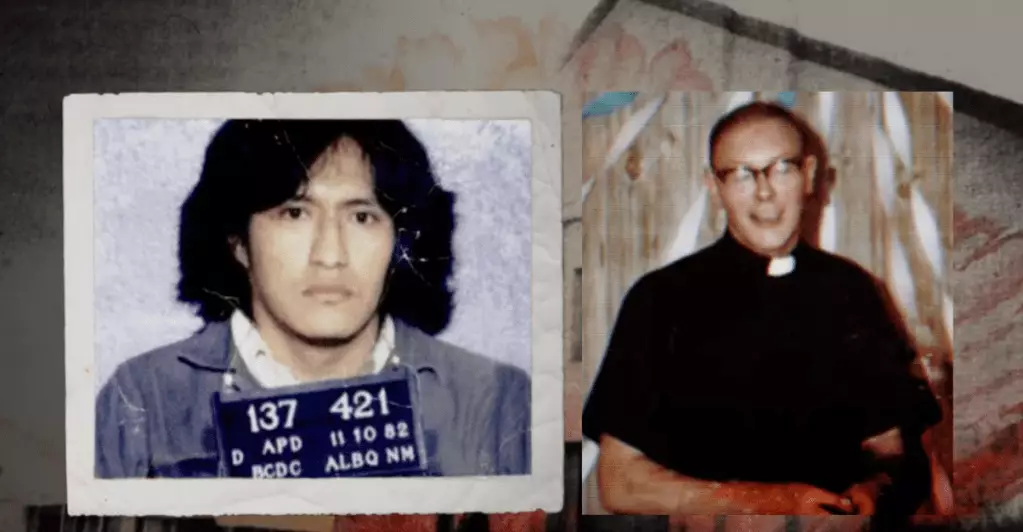In the dimly lit confines of the Sage and Sand Motel in Odessa, Texas, the lifeless body of Father Patrick Ryan was found in 1981, stripped of dignity, with his arms bound behind him. He was a closeted gay Catholic priest, whose tragic demise encapsulated the complexities of identity and societal prejudice in a conservative small town. This grim reality is just the tip of the iceberg representing systemic failures within America’s justice system—failures that would land an innocent man behind bars for two long decades.
The case of James Harry Reyos, the man wrongfully accused of Ryan’s murder, embodies the pitfalls of a broken system. With scant evidence tailored to fit a narrative fueled by bias, authorities settled on Reyos, a closeted Apache man. They enforced their version of the truth despite his solid alibi, showing that the need for “closure” often eclipses the pursuit of justice.
The Shadows of Prejudice and Misjudgment
Reyos’ story isn’t simply a matter of error; it reflects an overarching societal malaise. In a world marred by rampant homophobia and racial prejudice, he was easy prey—a “throwdown character” who, due to his identity, became a scapegoat for the community’s discomfort. The prosecution seamlessly harnessed the existing biases—perhaps unaware, or perhaps indifferent—to convict a man who had, by all accounts, likely played no role in this heinous act.
As disturbing as the crime itself is the apparent ease with which authorities overlooked evidence that might have exonerated Reyos. The decision to pursue a narrative that conformed to the town’s prejudices rather than delve into the uncomfortable notion of error speaks volumes about the systemic injustices embedded within law enforcement.
A Ray of Hope Amidst the Darkness
Fast forward several decades, and the appointment of Mike Gerke as the police chief of Odessa signals a shift. It marks not merely a new administration but a platform for much-needed change. Gerke, inspired by true-crime podcasts, rekindles interest in Reyos’ case. One wonders how many injustices have gone unaddressed simply due to a lack of fresh eyes and new ideas penetrating an antiquated system.
The most eye-opening revelation came about when latent bloody fingerprints from the crime scene were rediscovered. By neglecting to utilize technological advancements like the Automated Fingerprint Identification System (AFIS), investigators had effectively left a window wide open for further inquiry. This negligence showcases how the justice system often leaves the innocent victimized and reinforces the idea that comprehensive investigations require vigilance beyond initial findings.
A Community in Defiance of Injustice
As public awareness grows in light of the documentary “Night in West Texas,” directed by Deborah Esquenazi, the narrative becomes more than just a logical examination of evidence. It turns into a rallying cry against systemic discrimination and injustice. Esquenazi, known for her poignant storytelling, captures both the torment and the resilience of a community galvanizing to exonerate Reyos.
The film shines a light on the often-overlooked voices in these narratives—the activists, advocates, and everyday citizens who dare to stand against institutionalized indifference. With representation from the Innocence Project of Texas, the team dedicated to digging deep into Reyos’ case illustrates the importance of collaboration across diverse societal sectors in effecting change.
The Inevitability of Change
As Reyos’ new investigators sift through layers of bias and neglect, they bring forth undeniable questions about our justice system. Why do we allow outdated societal norms to dictate a person’s fate? How many more James Reyoses exist within the shadows? These questions echo much louder as their relevance resonates across different communities.
The haunting narrative of Reyos and the subsequent exoneration effort is not merely a historical account; it serves as a potential template for future reforms. Time and again, society has witnessed the consequences of prejudiced beliefs intersecting with law, leading to systemic failures and lost lives. It is crucial to recognize the humanity behind the headlines and advocate for change that transcends mere legalities.
As “Night in West Texas” screens at the Frameline LGBTQ+ Film Festival, it invites not just an examination of the past but also a proactive stance toward a more equitable future. For every story uncovered, there lies an opportunity for reflection, for justice, and for an unwavering stand against societal injustices that must not be tolerated any longer.

Leave a Reply